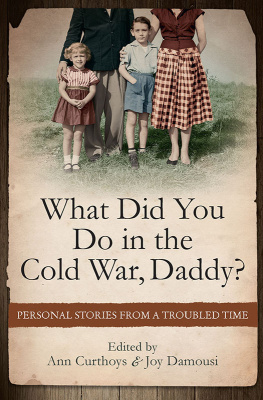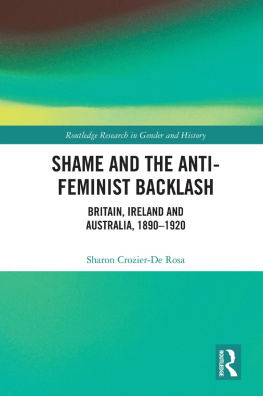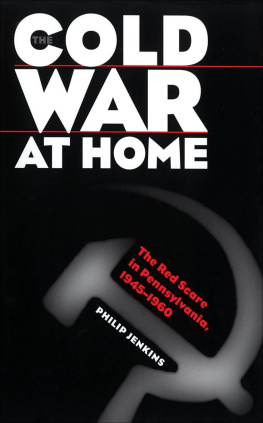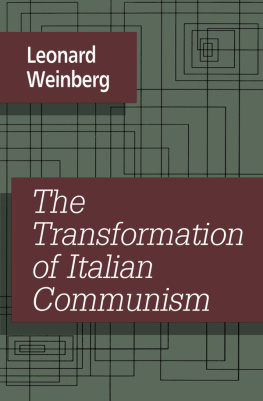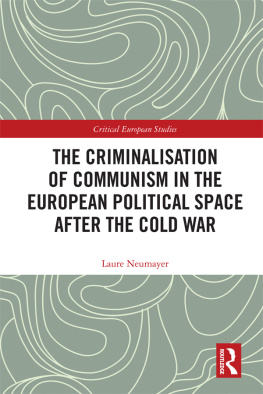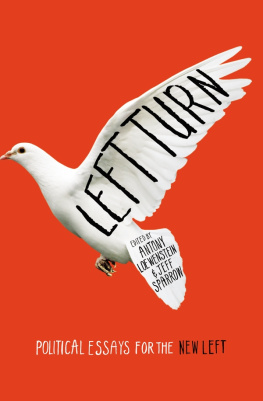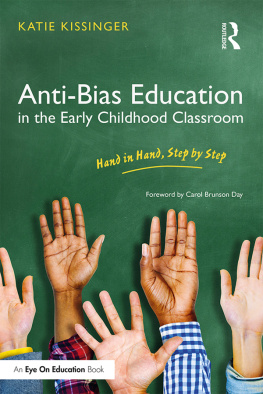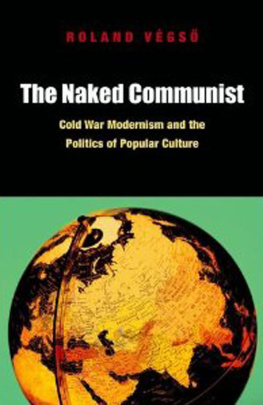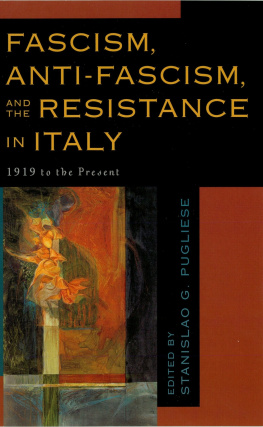What Did You Do in the Cold War, Daddy?
ANN CURTHOYS is an honorary professor at the University of Sydney, and was previously Manning Clark Professor of History at ANU. She has written about many aspects of Australian history, and on questions of historical theory and historical writing. In the 1980s she co-edited two books on Australias Cold War and another on Australian history since 1945. More recently Ann has been working on Paul Robesons visit to Australia in 1960, exploring the connections between Cold War politics and the changing nature of race relations in Australian society. She is author of Freedom Ride: A freedom rider remembers (2002); with John Docker, Is History Fiction? (2005); and with Ann McGrath, How to Write History that People Want to Read (2009).
JOY DAMOUSI is Professor of History at the University of Melbourne. She has had a long-standing interest in Australian political history, beginning with her first book published twenty years ago on women in left-wing movements, Women Come Rally: Socialism, communism and gender in Australia 18901955 (1994). Since then she has written on various aspects of the politics and impact of war, migration and internationalism throughout the Cold War period. Her books include Living with the Aftermath: Trauma, Nostalgia and Grief in Post-war Australia (2001), Freud in the Antipodes: A Cultural History of Psychoanalysis in Australia (2005) and Colonial Voices: A Cultural History of English in Australia 1840-1940 (2010). She is co-editor of Diversity in Leadership: Australian Women, Past and Present (2014).
What Did You Do in the Cold War, Daddy?
PERSONAL STORIES FROM A TROUBLED TIME
Edited by
Ann Curthoys & Joy Damousi

A NewSouth book
Published by
NewSouth Publishing
University of New South Wales Press Ltd
University of New South Wales
Sydney NSW 2052
AUSTRALIA
newsouthpublishing.com
This collection and introduction Ann Curthoys and Joy Damousi 2014
Individual essays individual contributors 2014
First published 2014
This book is copyright. While copyright of the work as a whole is vested in Ann Curthoys and Joy Damousi, copyright of individual chapters is retained by the chapter authors. Apart from any fair dealing for the purpose of private study, research, criticism or review, as permitted under the Copyright Act, no part of this book may be reproduced by any process without written permission. Inquiries should be addressed to the publisher.
National Library of Australia Cataloguing-in-Publication entry
Title: What Did You Do in the Cold War, Daddy?: Personal stories from a troubled time/edited by Ann Curthoys and Joy Damousi.
ISBN: 9781742233918 (paperback)
9781742241777 (ePub/Kindle)
9781742246932 (ePDF)
Subjects: Cold War Anecdotes.
Cold War Influence.
Cold War Social aspects Australia.
Cold War Moral and ethical aspects Australia.
Australia History 19451965.
Australia Social life and customs Anecdotes.
Australia Social conditions 19451965.
Australia Politics and government 19451965.
Australia Biography Anecdotes.
Other Authors/Contributors: Curthoys, Ann, 1945 editor.
Damousi, Joy, 1961 editor.
Dewey Number: 994.05

Design Josephine Pajor-Markus
Cover design Luke Causby, Blue Cork
Cover image Corbis
All reasonable efforts were taken to obtain permission to use copyright material reproduced in this book, but in some cases copyright could not be traced. The editors welcome information in this regard.
Contents
Introduction
Ann Curthoys and Joy Damousi
Lives were broken, friendships torn, families divided, and sometimes unlikely alliances and friendships formed. The Cold War in Australia took politics into the most intimate of spaces into relationships and domesticity at a time when political commitments defined not only ones politics, but also ones identity, social circle and way of life. Feminists insist that the personal is political; in the Cold War era, in particular, the political was definitely personal.
This book is about the personal dimensions of politics during Australias Cold War. Our aim is to help readers understand what the Cold War felt like, whatever side of the political fence you lived on. We present here twelve personal accounts which singly and together help illuminate the emotional dimension of this especially turbulent period in Australian history.
The Cold War
The Cold War is generally said to have begun around 1946, in the immediate aftermath of the Second World War, and to have ended in 1991, with the collapse of the Soviet Union and of socialist regimes in Eastern Europe around the same time. During these forty-five years or so, the Cold War dominated international relations and world politics. Our interest here is in how this worldwide conflict was experienced and felt by individuals living in Australia at the time.
From 1946, the USA and the USSR swiftly shifted from victorious allies to bitter ideological, military and economic enemies. Both nations became more powerful after the war than before it, despite extensive human losses from the wartime struggles against Germany, Italy and Japan. The US was now the wealthiest and most powerful economy in the post-war world, and sought to sustain a worldwide capitalist system, supporting, for example, financial agencies like the International Monetary Fund and the World Bank. While the Soviet Union was seriously weakened, with the loss of over 20 million people, in the mid to late 1940s it extended its sphere of influence to include a number of countries in Eastern Europe; by 1955 this Soviet bloc was strengthened by the Warsaw Pact.
The stage was thus set for conflict between these two great powers with their supranational, competing economic and political systems. While the much-feared World War III did not eventuate, during the Cold War international relations were dominated by the high levels of political and military tension between the United States and its allies and the Soviet Union and its allies. This tension, impacting on nation states and felt by the ordinary people who lived in them, was greatly heightened by the development, first by the Americans and then the Soviets, of nuclear weapons. There were, however, many complexities, not only because some nations, such as India, remained unaligned, but also because the world was simultaneously undergoing another major revolution the end of European colonial rule in large parts of Africa, Asia and the Middle East.
In Australia these global conflicts had several political consequences. One was continuing debate over relations with the USA, for reasons of defence and economic policy, with coalition governments from 1949 onwards standing strongly for the American alliance and the Labor Party in opposition internally divided. A second was widespread concern at the spread of communism in the region, notably in South-East Asia where communist parties had significant following in the post-war period, especially in Indonesia, Malaysia and Vietnam. And a third, the one that concerns us most directly in this book, was a determination by the major parties and others to prevent the spread of communism at home.
In response, the government established the Australian Security Intelligence Organisation (ASIO) in 1949, a body which soon came to interpret its role as being not only to trace and prevent such security breaches in future but also more broadly to conduct surveillance on those demonstrating communist or other left-wing sympathies. This information could then be used to exclude communists from employment in politically or diplomatically sensitive areas and other public institutions.
Next page
